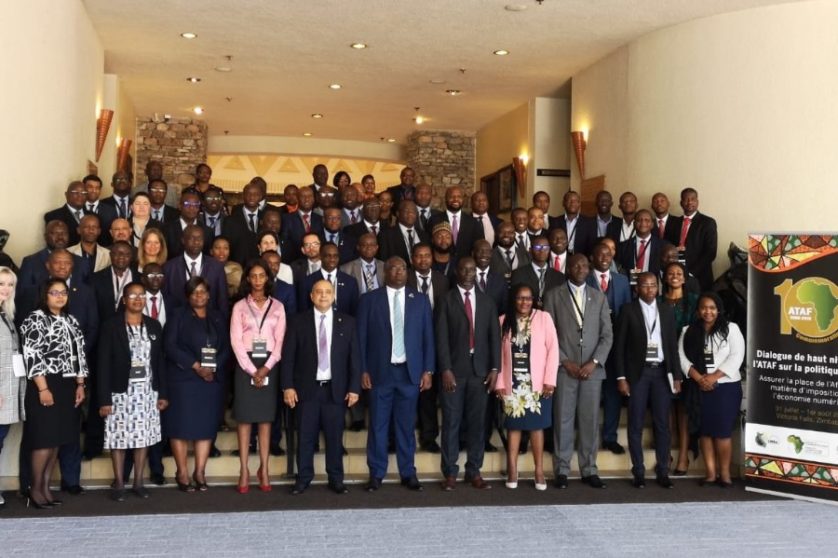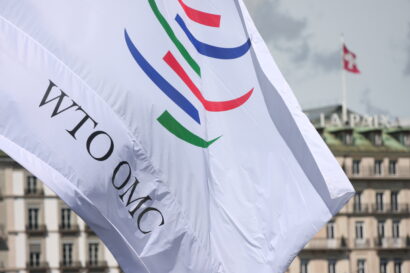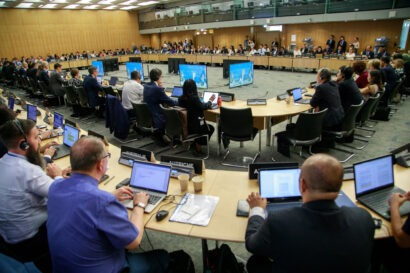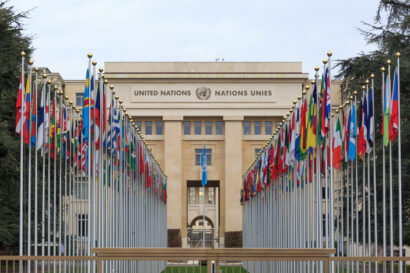Africa has an important role to play in current plans to reform international tax rules in response to the challenges of the digital economy. Of 132 members of the OECD/G20 ‘Inclusive Framework on BEPS’ (IF), which is leading this work, 24 are African; its steering group has a Nigerian deputy chair, and members from Cote d’Ivoire, Senegal and South Africa. The United Nations tax committee, meanwhile, has six African members out of 25. It’s no surprise, then, that soon after joining our workshop last month, the OECD’s top tax official, Pascal Saint-Amans, headed to South Africa for talks with the African Tax Administration Forum (ATAF). How will the continent respond? To gain some insights, I travelled last week to ATAF’s High-Level Policy Dialogue in Zimbabwe.
ATAF has published a technical note that identifies a number of concerns with – and priorities for – the latest IF proposals. For instance, one issue is the use of minimum thresholds. Pillar 1 of the IF plan will make multinationals liable to tax on profits made in countries where they have significant sales (and possibly users) even without the physical presence that is currently required. It will include some kind of de minimis threshold, so that companies only become taxable if they have sufficient involvement in that country’s economic life. If such thresholds are defined as an absolute number – sales above a certain amount, for example – they work against low-income countries. If your economy is smaller to start with, you want a threshold based on the company’s importance to your economy.
While this kind of reactive work is essential, the conference illustrated several ongoing challenges. The first is the need to think proactively about the tax rules that would work best for African countries. As ATAF’s Secretary General, Logan Wort, said when opening the conference, the starting point for discussions should be the challenges facing Africa, not the solutions being negotiated among larger countries. Mustapha Ndajiwo has found that many African countries are waiting for the outcome at the IF, rather than developing their own plans.
A number of tax measures are emerging from the continent, however, including excise duties on digital transactions and foreign service providers, imposing VAT on foreign digital service providers, and ‘equalisation levies’ that target the profits made by foreign digital businesses. These measures can be hard to apply without international cooperation, because in some cases they are levied on actors with no established presence in a country, making it difficult to compel companies to pay without intergovernmental cooperation. For instance, a Ugandan official expressed frustration at being ‘ignored’ by foreign companies that the Uganda Revenue Authority had instructed to register for VAT in the country.
ATAF’s preferred solution is to work together on a regional approach that is relevant to African countries but avoids unilateralism. The kind of international agreement that ATAF members need may well be one that helps them to implement such home-grown measures, yet the eventual package deal agreed at the IF may do the opposite, obliging countries to eliminate measures that are inconsistent with the global agreement. Fears about the conditionality attached to OECD/G20/IF agreements have been exacerbated by the European Union’s decision to blacklist countries, including several from Africa, if they do not adopt the minimum standards emerging from the last big reform to international corporate tax rules.
#ATAFNEXUS2019 Lincoln Marais from SARS: ” Being at the table is no longer enough in matters of setting international tax standards. But the ability to thoroughly understand and engage with the Menu should underpin the principle of ‘equal footing'”.@ATAFtax“@Zimra_11 pic.twitter.com/5HeeIAKLar
— NMonkam (@NaraMonkam) July 31, 2019
This is why the metaphor that “if you’re not on the table, you’re on the menu” has become the mantra at conferences on global tax governance. In contrast to the last round of OECD reforms, many African countries have been at the Inclusive Framework table from the beginning of the current process. Despite this, it’s not yet clear that they are “off the menu” – that an agenda brokered primarily among larger economic powers can also suit African needs. There will be some gains for African countries from whatever emerges, but will they outweigh the costs of the formal obligations they impose?
“There’s no guarantees that under the current negotiations the new standards of taxing rights will leave African countries better off than before. What kind of technical and policy support is needed to address this risk?” #ATAFNEXUS2019
— ATAF (@ATAFtax) August 1, 2019
A second challenge is that, while OECD and G20 states are engaged with the digital tax debate at the highest political levels, Africa’s involvement is still largely at the revenue administration level. Political support and buy-in are necessary for African countries are to get the best possible outcome, yet in many countries they are not yet there. Most African countries are represented at the OECD by revenue authority officials, whereas it is finance ministries that determine tax policy.
One political risk has already emerged. G20 leaders have endorsed the plan to fix a minimum effective tax rate that multinationals would be expected to pay everywhere in which they operate, through an ‘income inclusion rule’ in Pillar 2 of the OECD plan. There is considerable concern that this could invalidate the tax incentives granted by African countries to attract foreign investment. Revenue authorities are often critical of tax incentives, which can be poorly governed and are frequently unnecessary. Nonetheless, it is clear that political support for the whole reform package in Africa may be hard to secure if it nullifies tax incentives. It’s not just that the proposal would render tax incentives ineffective, but also that the additional tax would most likely be payable in the multinational’s home country, not in Africa.
All of this points to the recurring theme of the conference, set out in the outcome statement: “African countries should also use political pressure through the African Union and the Pan-African Parliament to ensure that we have an African solution to taxing the digital economy.”



